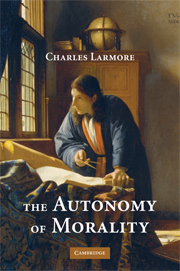9 - Nietzsche and the Will to Truth
Published online by Cambridge University Press: 05 June 2012
Summary
PIOUS AND FREE SPIRITS
In Book Five of The Gay Science, Nietzsche proudly placed himself among “the fearless ones” (die Furchtlosen), determined as he was to explain “to what extent even we are still pious.” One final form of piety has yet to be challenged, he declared, despite the Enlightenment's campaign against religious and metaphysical illusion, and indeed because of that movement's very success. It is the belief in the unconditional value of truth. Nietzsche wanted us to understand, of course, that he alone was the really fearless thinker. For only he dared to ask, “Why truth? Why not rather untruth?”
One mark of a philosopher's importance is to have seen the need to ask fundamental questions where others have proceeded with unquestioning assurance. Nietzsche was right that far too few have wondered why we should care about truth as we apparently do, holding our thought and action accountable to the way things are, by contrast with the way we might wish they were. Posing deep questions was one part of what made him a radical thinker. The other was his habit of going on to answer them in ways that sought to overthrow our ordinary self-understanding. To my mind, many of the recent Anglo-American commentaries on Nietzsche wrongly try to domesticate his thought, to make it presentable by likening it to familiar philosophical options, whereas Nietzsche's aim was revolutionary, to shatter the most basic assumptions of the philosophical tradition. By his own self-description, he “philosophized with a hammer.”
- Type
- Chapter
- Information
- The Autonomy of Morality , pp. 223 - 245Publisher: Cambridge University PressPrint publication year: 2008



